Each year, I track my ten favorite films of the year based on my IMDB ratings. Inevitably, come award season, I regret about half of my choices. As a result, there are always glaring absences in these top-tens. I usually haven’t seen most of the films being hyped for award season by the time the year ends. I see award season as its own 2-3 month period of time separate from the rest of the year. It just works out that way.
The most likely film to have appeared on this list that I have yet to see is The Favourite, directed by Yorgos Lanthimos, the Greek director behind The Killing of a Sacred Deer, The Lobster, and Dogtooth. There’s little doubt in my mind that Luca Guadagnino’s Suspiria re-imagining would find its place here as well. I haven’t been able to check out If Beale Street Could Talk, A Star is Born, Beautiful Boy, Boy Erased, First Man, and most of the other Oscar-bait dramas you’ll be hearing about to death up until the Academy Awards, so keep that in mind as you read this list.
In 2018, my projected favorite film of the year has changed more than any year, and that’s a fantastic feeling. My current number one is a film I’ve only seen within the last few weeks, so at least one entry was knocked off my original list. Because there have been so many noteworthy films this year, I feel an “honorable mentions” section is in order.
Honorable Mentions:
Brigsby Bear
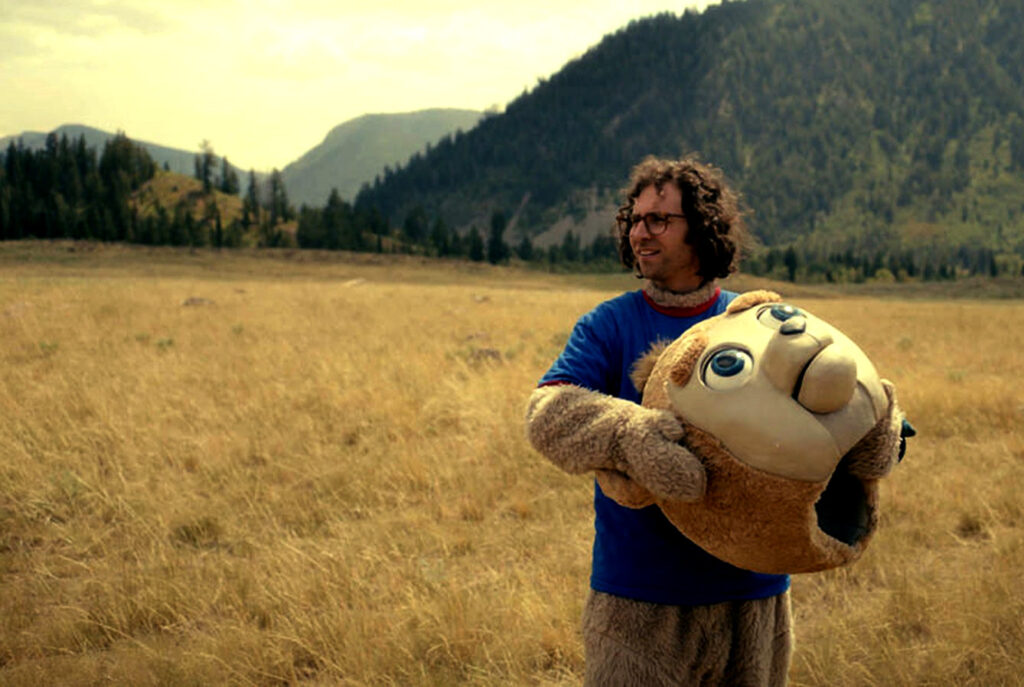
Brigsby Bear is probably the best movie to arise from the SNL crowd, although it’s not really produced by SNL affiliates. Technically released in 2017, this one really took me by surprise. Kyle Mooney co-wrote the script, and also stars. His performance is a bit like taking his dry SNL performances and building a character around that. This simile reeks of the potential for another It’s Pat or A Night at the Roxbury, but Brigsby Bear is so cleverly written that it doesn’t feel even remotely connected to the sad “SNL expanded universe.”
This is one of those “just watch it” movies, because explaining the premise does the film a great disservice. On a surface level, its plot doesn’t seem to indicate anything special, making it a hard sell. In order to preserve the viewing experience, I’ll say very little about this one. I found it unexpectedly heart-warming and well-written, and it’s definitely criminally overlooked. It only lands in my honorable mentions because it’s technically a 2017 release.
Happy End

Another 2017 film I only recently had the opportunity to check out, Happy End is the latest thoughtfully-disturbing project by Michael Haneke (Cache, Funny Games, The White Ribbon). Haneke is a director I regard highly, and yet it’s difficult to recommend his films to everyone. His slow, bleak, disturbing, and brilliant contributions to cinema require patience and a strong stomach, but they reward those willing to go along for the ride.
Happy End concerns a dysfunctional family and the generational impact of these dysfunctions. It occasionally uses the technique popularized by Unfriended, showing us PC and smartphone screenshots to tell parts of its story. This late in Haneke’s career, it’s great to see that he’s still producing quality films.
Wild, Wild Country
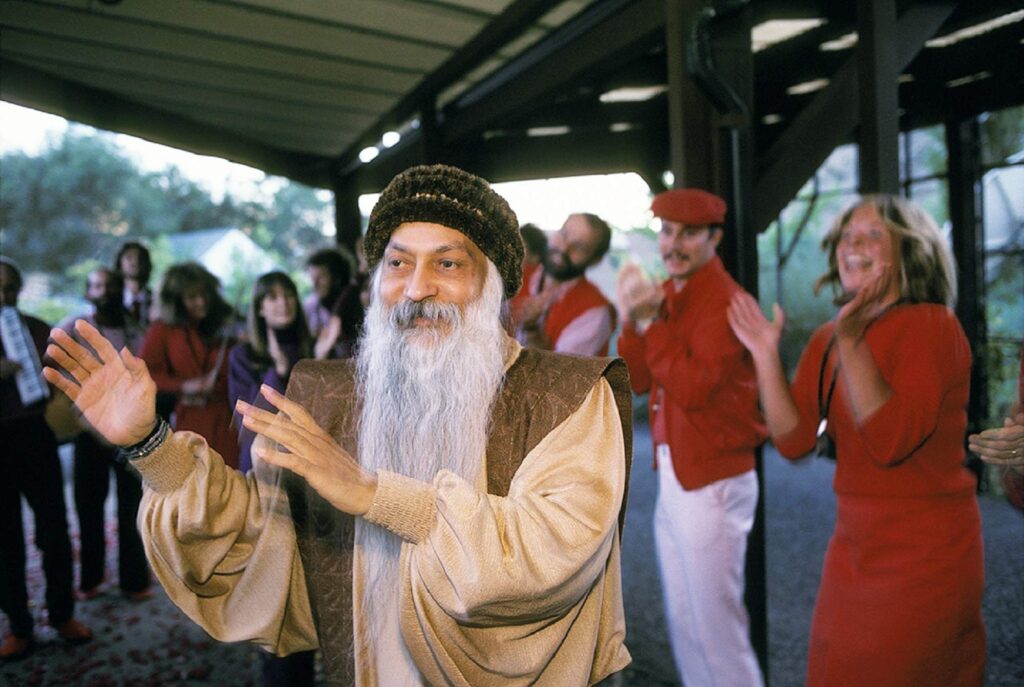
This would be on my list if it weren’t a documentary miniseries. Still, it was one of the most fascinating experiences of 2018, and it deserves to be recognized. The 6-part series concerns Bhagwan Shree Rajneesh, an Indian guru who founded a controversial commune in Oregon. I went into this without knowing anything about Rajneesh, and it’s such a shocking, multi-faceted story that each episode maintains the momentum of a well-crafted thriller. The series is such a thorough examination of the story that even those familiar with it will likely find it fascinating.
Novitiate
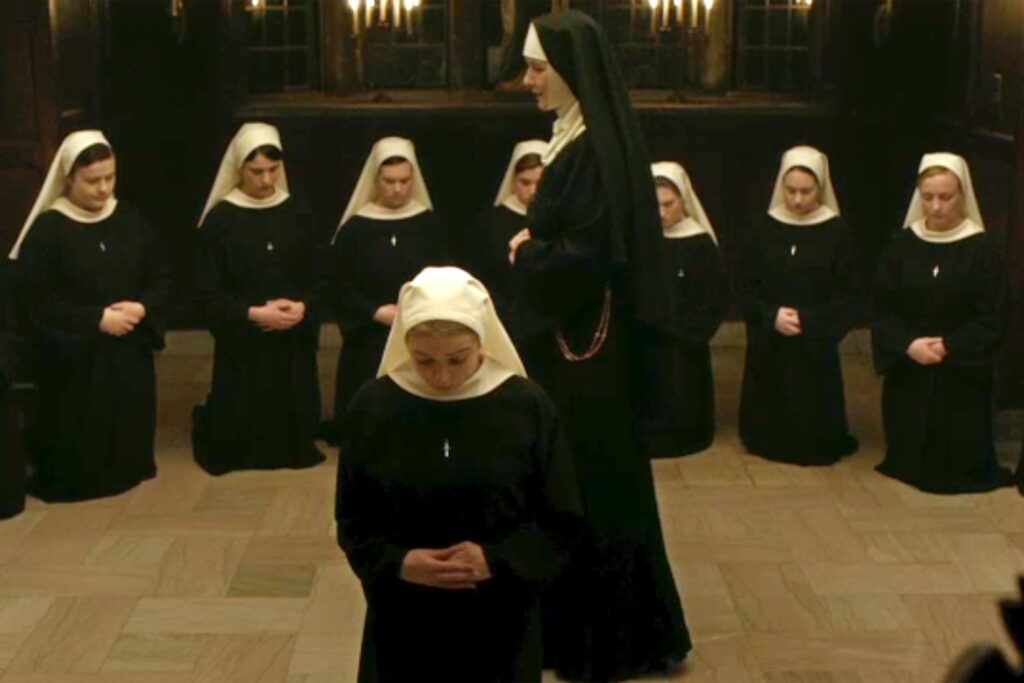
Including this on a list of the best films of the year would be really pushing it, since it was released all the way back in January of 2017. Novitiate offers a unique look into the impact of “Vatican II” on nuns in the 1960s. V2 introduced several changes to the way nuns are classified in the church. These changes seem to have occurred in the spirit of protecting the sisters, but the film explores the unintended consequences and sorrow that came along with the de-formalization of that role. It’s a perspective I’ve never seen on film before, and the acting is impeccable.
The List Proper:
10) The Miseducation of Cameron Post
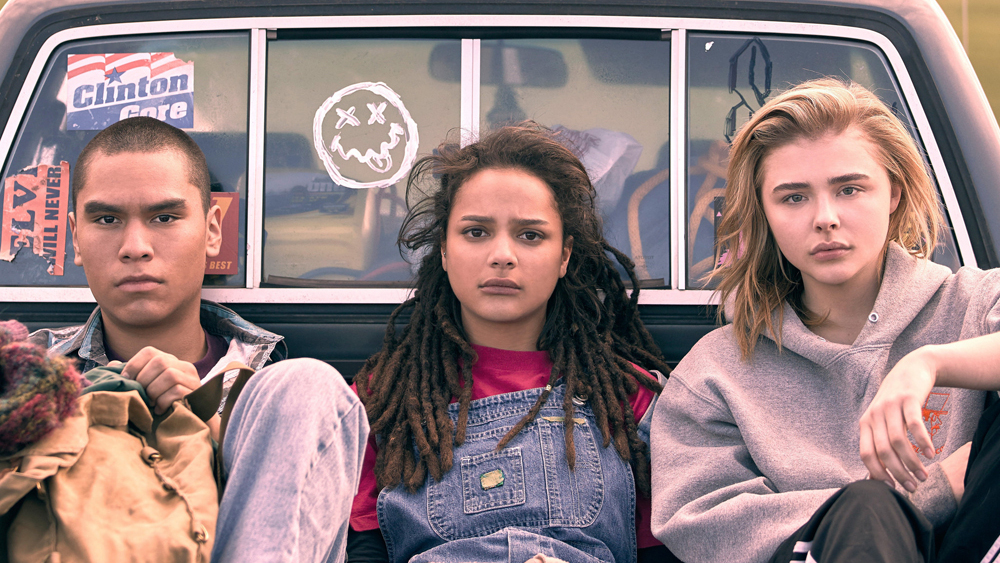
2018 must be the year of gay conversion therapy dramas. Having missed Boy Erased, I’m glad I at least had the chance to check out The Miseducation of Cameron Post.
Chloë Grace Moretz will probably be a “child actress” for the next decade. Over the course of her career, she has changed very little visually, and while she’s 21 now, I’d say she has several years to go before playing a character her age. I’ve usually enjoyed her performances, and she tends to be a bright spot in bad or mediocre films. Here, she plays the titular character Cameron, a high school student just discovering her sexuality. After being caught messing around with a female student in the school parking lot on prom night, her aunt Ruth decides that it’s time to pray the gay away, sending Cameron to a conversion therapy center that looks like a psych ward mixed with church camp.
The camp is run by the not-so-friendly Dr. Lydia Marsh, who rules the camp with an iron fist. Her right-hand man is Revered Richard (heh), Dr. Marsh’s brother, a former homosexual miraculously cured by his sister’s “tough love.” Cameron struggles with the nature of her treatment at the facility, unsure if she really needs to be cured of her alleged ailment. This plot is fairly standard for dramas about this particular topic, but where The Miseducation of Cameron Post excels is its very human treatment of those administering conversion therapy.
Dr. Marsh, while severe, has relatable reasons for entering her profession, and the film is great at showing us the evolution of her perspective as she and her brother grow more and more skeptical about their chosen path. They both believe they have good intentions at heart, and come to realize the harm they’ve caused, even though they’re often unwilling to show it. Ignoring Moretz’s fantastic acting, the two sort-of villains in the film are some of the most emotionally complex characters I’ve seen in a while.
9) Don’t Worry, He Won’t Get Far On Foot
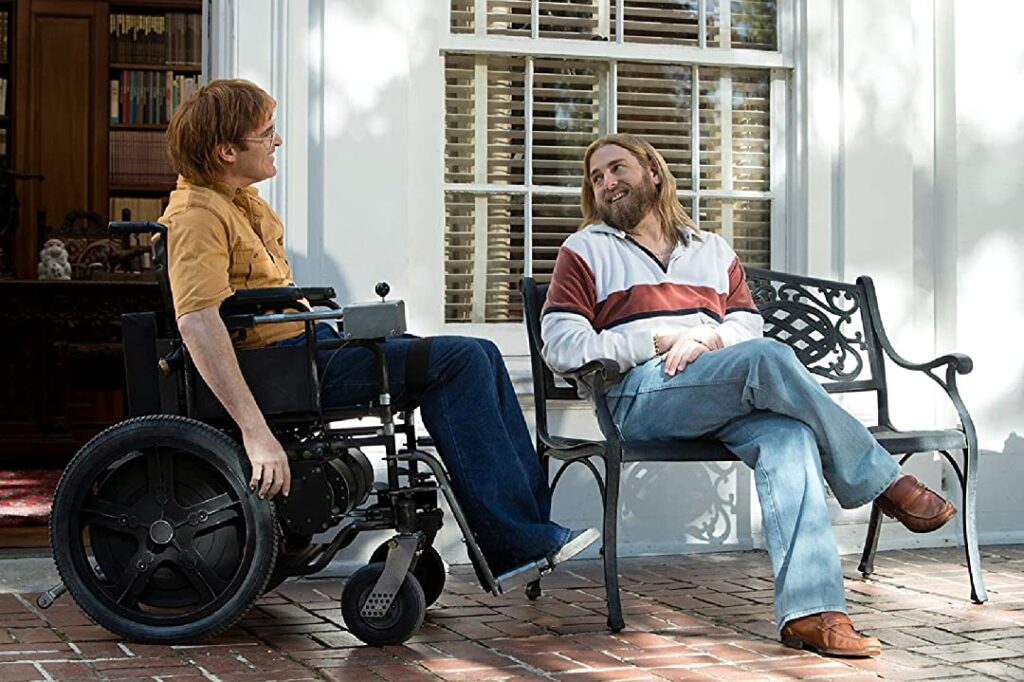
I was beginning to think Gus Van Sant was done for. 2012’s Promised Land was a boring drama about fracking, and 2015’s The Sea of Trees was so bad that I’d recommend it for the absurdity alone. Thankfully, this is a big comeback for the polarizing director.
Don’t Worry, He Won’t Get Far On Foot is an adaptation of the memoir of John Callahan, a controversial cartoonist from Portland. John (Joaquin Phoenix) becomes a quadriplegic after a car accident fueled by a boozed-soaked night with his friend Dexter (Jack Black). John falls in love with his nurse Annu (Rooney Mara), and struggles throughout the film with his alcoholism. I’m not usually one to care for woe-is-me alcoholic characters, but this portrayal is exceptionally raw, honest, and emotional.
The supporting cast is amazing, and really elevates the story. The cast includes Mark Webber, the versatile Udo Kier, Sonic Youth’s Kim Gordon, and Portland’s mascot Carrie Brownstein. By far the brightest spot in the film is Donny, John’s flamboyant, guru-esque AA sponsor, played by Jonah Hill in his best performance since The Wolf of Wall Street. Phoenix is great as well, and the film is unafraid of exposing John’s flaws, unlike the many stories about recovering from alcoholism in which the main character becomes a saccharine saint who can do no wrong, magically healed by the power of support groups. This honest portrayal was a breath of fresh air.
8) Crazy Rich Asians

There’s a RomCom on my list – it’s the first sign of the apocalypse.
It’s incredibly atypical for a romantic comedy to excel on a technical level, and Crazy Rich Asians does just that. The story follows some of the clichés we’ve seen a hundred times in other similar films, but for the most part, they’re handled with care, preventing Crazy Rich Asians from being just another cynical attempt to exploit a feminine demographic for guaranteed cash-flow with minimal effort.
While I can’t exactly describe the cast as “ensemble,” the performances and characters here are quite memorable. The film is also absolutely gorgeous, well-directed, well-paced, and utilizes some rather effective editing gimmicks. The story drops the ball a bit in the third act, but in an easily forgivable way.
My appreciation for Crazy Rich Asians can be summed up with a single question: When was the last time a mainstream RomCom received praise for its cinematography?
7) You Were Never Really Here
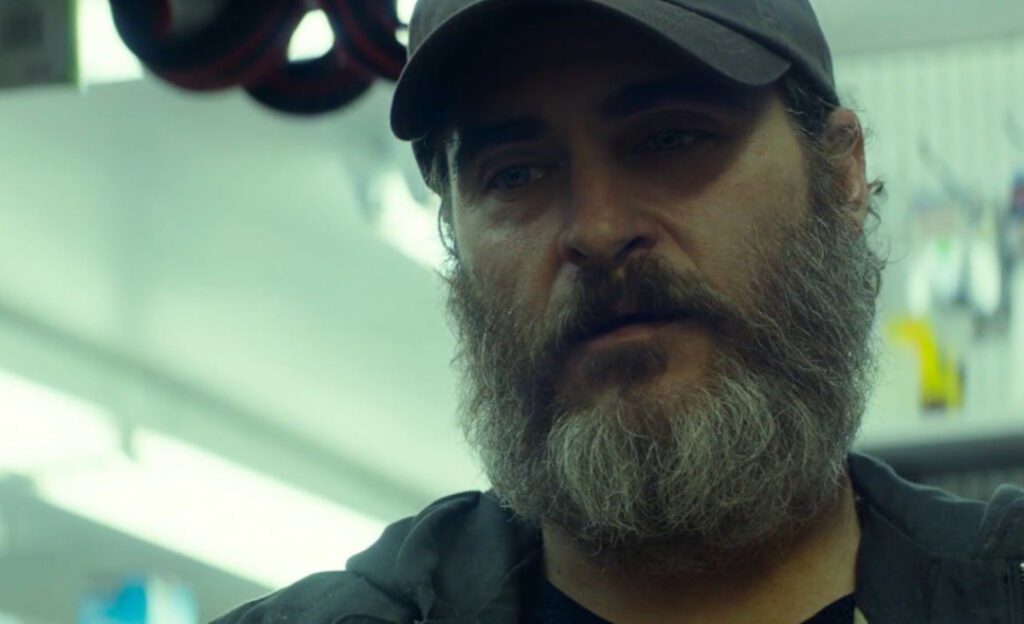
Joaquin Phoenix shows up again on this list with Lynne Ramsay’s You Were Never Really Here. I’ve been thoroughly satisfied Ramsay’s output as a director, from Ratcatcher to the stellar We Need to Talk About Kevin. Her streak continues with a story about Joe, a brutal and tortured mercenary who specializes in rescuing young girls trapped in the dark world of sex trafficking.
Phoenix’s Joe is a complex combination of Taxi Driver’s Travis Bickle and Hitchcock’s Norman Bates. He’s a chronic momma’s boy by day, and an unrelenting killer by night. Joe finds both release and emotional complication with each kill, as he’s exploited by the rich and powerful to commit atrocities in the name of seemingly noble causes. Through flashbacks, we gradually piece together the complications of Joe’s upbringing. The emotional numbness Phoenix brings to the role makes his outpourings of emotion meaningful, and it’s a powerhouse performance.
Though Ramsay releases films relatively infrequently, I can’t wait to see what she does next…even if I have to wait another five years.
6) Searching
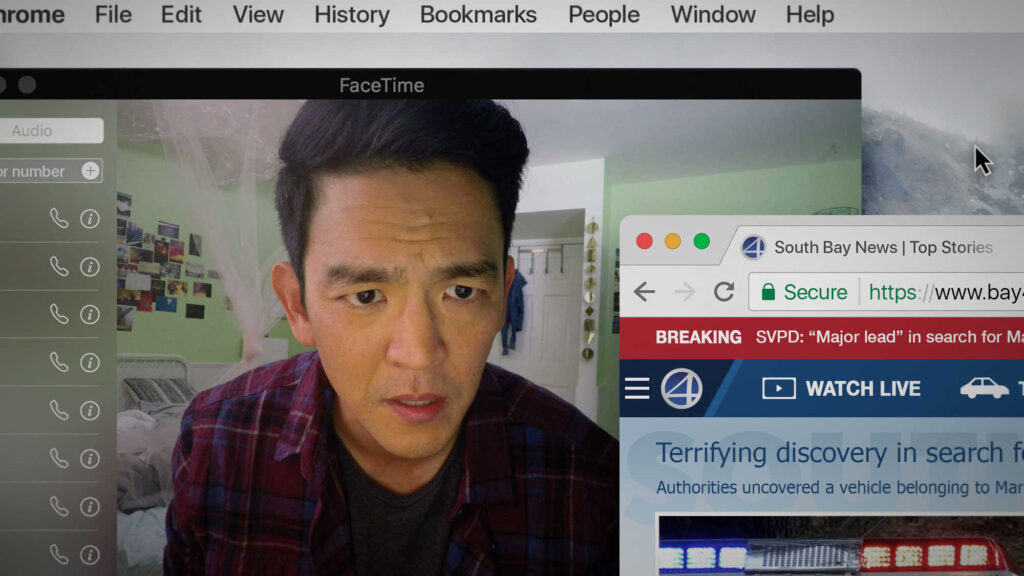
Finally, the style championed by inferior films like Unfriended has given us a quality entry. Searching is about a man whose daughter is missing. We see the action unfold through his PC desktop and smartphone, and it’s used to great effect here.
There are a few aspects that separate Searching from its contemporaries. It’s well-paced, well-acted, and well-directed, which isn’t something I’ve expected out of movies like Unfriended. More importantly, there’s some painstaking detail in the film’s writing.
When you consider what making a film based around desktop streams entails, it almost sounds like an easy way out, a gimmick like the ones we’ve seen in found footage for the past several years that could easily serve to decrease budgets and improve profit margins. Searching rejects these perspectives. To truly create a realistic scenario where we feel as if we’re peering over the main character’s shoulder and watching him pour through emails, there were another 1,000 pages written for the script. These approximate 1,000 pages make up the content found in the background, such as email previews, Facebook comments, banner ads, Google search results, etc. There are at least five other movies going on within Searching, including an entire subplot about an alien invasions that you could miss even after seeing the film 3+ times. These details make Searching one of the most compelling and accomplished films this year.
5) Won’t You Be My Neighbor?
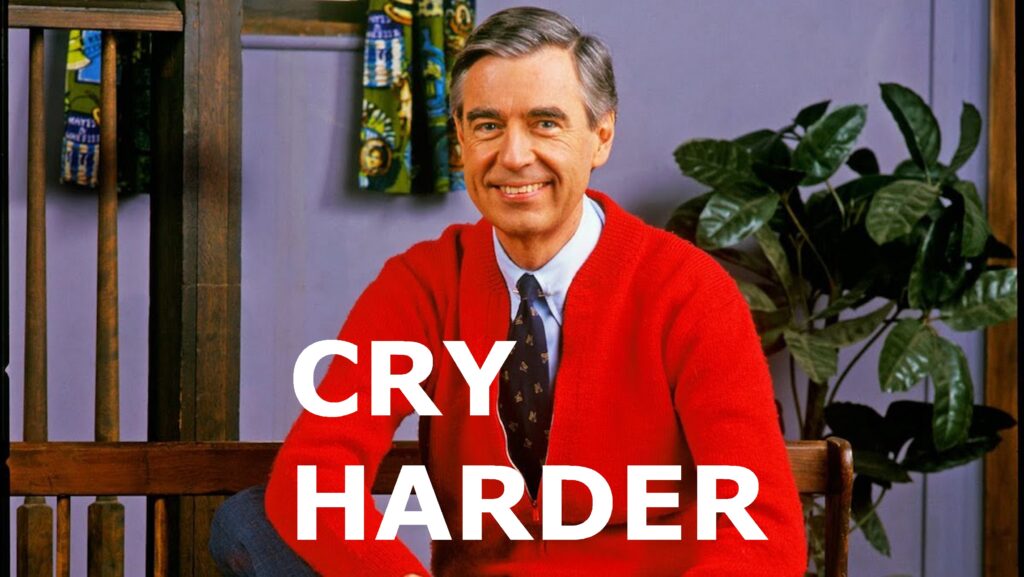
I didn’t expect to love a documentary about Fred Rogers. I watched Mr. Roger’s Neighborhood as a child, but real-life Rogers was never really on my radar. The film does a wonderful job at showcasing what a special individual Rogers was, and in rather tumultuous times, it’s nice to see a documentary about a man who valued kindness and acceptance above all else.
4) Annihilation
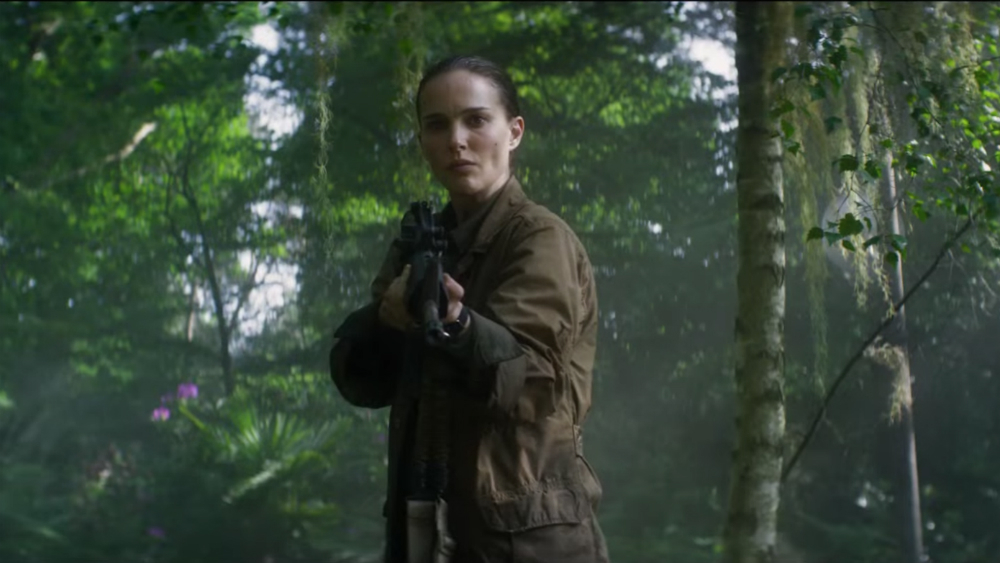
Moviegoers have been watching Alex Garland as a director after the surprise success of 2014’s Ex Machina, and while this looks like overnight success, Garland’s writing credits tell a different story. Garland wrote the novel that was later adapted into a polarizing film by Danny Boyle called The Beach, he wrote a 28 Days Later sequel that some enjoyed, he toyed with our expectations with 2007’s Sunshine, and his script for 2012’s Dredd is probably the last time anyone’s going to care about a Judge Dredd movie. In my opinion, his most notable script prior to Ex Machina was 2010’s Never Let Me Go, which never seemed to find its audience, most likely because it was a sci-fi film wrapped up in a drama starring Andrew Garfield. It was marketed as a young adult drama, and for those who would typically enjoy Garland’s work, that probably sounds extremely unappealing.
Once again, another Alex Garland film has been misleadingly advertised, and set back by unfortunate circumstances. Thankfully, instead of contributing to its obscurity, debates around Annihilation’s marketing presentation actually raised its profile. Particularly, it raised the question, “Under what circumstances does a film need to be seen in theaters?”
I was lucky enough to catch this in a theater, and my god was it an experience. There’s some really intense, grating sound design, beautiful cinematography, and strange locales. I couldn’t imagine loving it the way I did if I had seen it where most people did – on Netflix. Its release date on the streaming platform was oddly close to its theatrical release, and it wasn’t even released at all in European cinemas. Annihilation became a “Netflix thing” just after most people had the ability to see it in a theater, and it really is a damn shame.
Aside from technical competence, Annihilation is on-point in pretty much every other area. The performances of Oscar Isaac and Natalie Portman specifically stand out, barely overshadowing Jennifer Jason Leigh’s quiet yet blunt role as Dr. Ventress, a character so traumatized that her muted emotional reactions hurt to watch.
There was no other sci-fi film this year that resonated with me quite like Annihilation did, and I’m grateful that I wasn’t forced to watch this in bed.
3) First Reformed
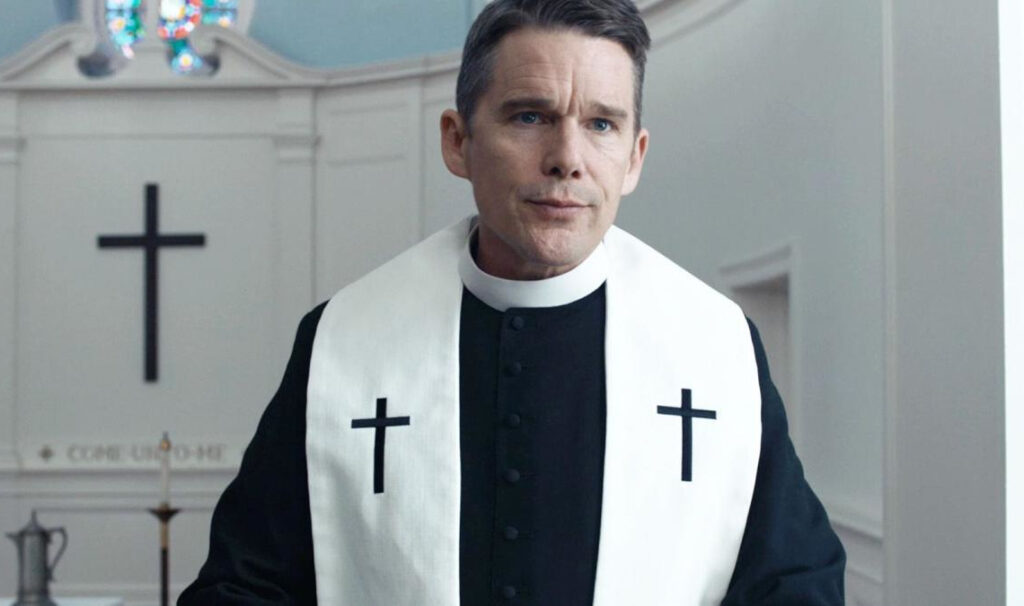
Paul Schrader has returned from whatever foxhole he’s been hiding in for the past several years to direct his best film since Hardcore. First Reformed is a technically impressive movie that managed to shock and move me every time I revisited it. For a film in 4:3 ratio, it feels damn cinematic, and the story, while derivative, calls back to some of my favorite outsider European dramas. Ethan Hawke has finally proven himself to be an actor, and not a background decoration trying desperately to make its way to the foreground. First Reformed has been tragically overlooked this year, but I won’t be forgetting it anytime soon.
2) Hereditary
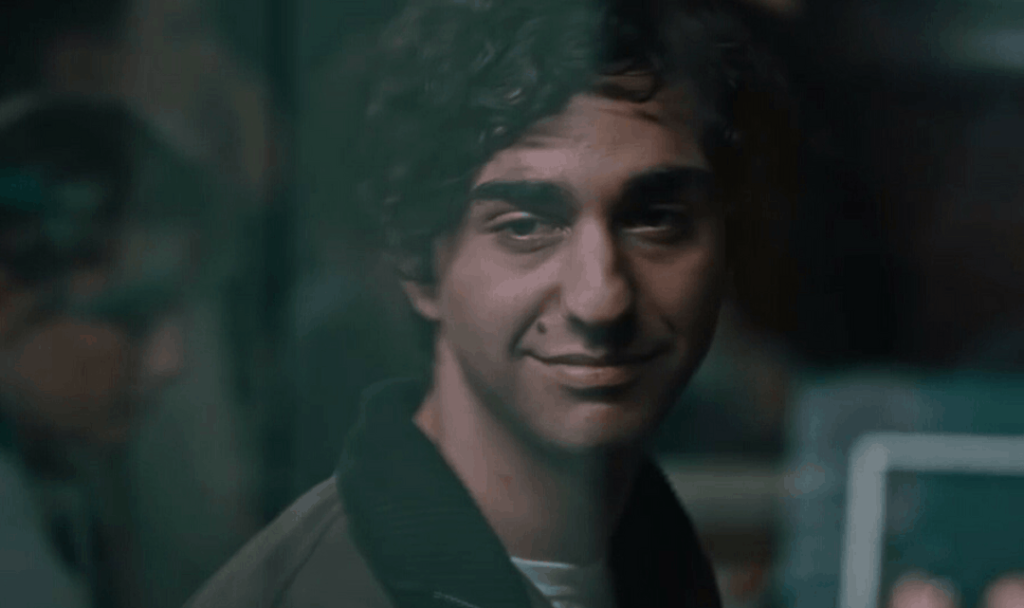
The hype around this film has been completely insane, and I’m glad I was able to see it just after its theatrical release. I’m holding my breath for a nomination (at least) for Toni Collette, whose unforgettable performance really deserves an Oscar.
There are so many unique aspects of Hereditary that set it apart from other films of its kind that I really have to wonder if Hereditary will be looked back upon as one of the greatest horror films of the decade. There’s very little to date the film, and everything about it is so well-crafted that I feel it’s perfectly fair to place this up there with The Shining or Psycho once another ten or twenty years have passed by. We shall see.
1) The House That Jack Built
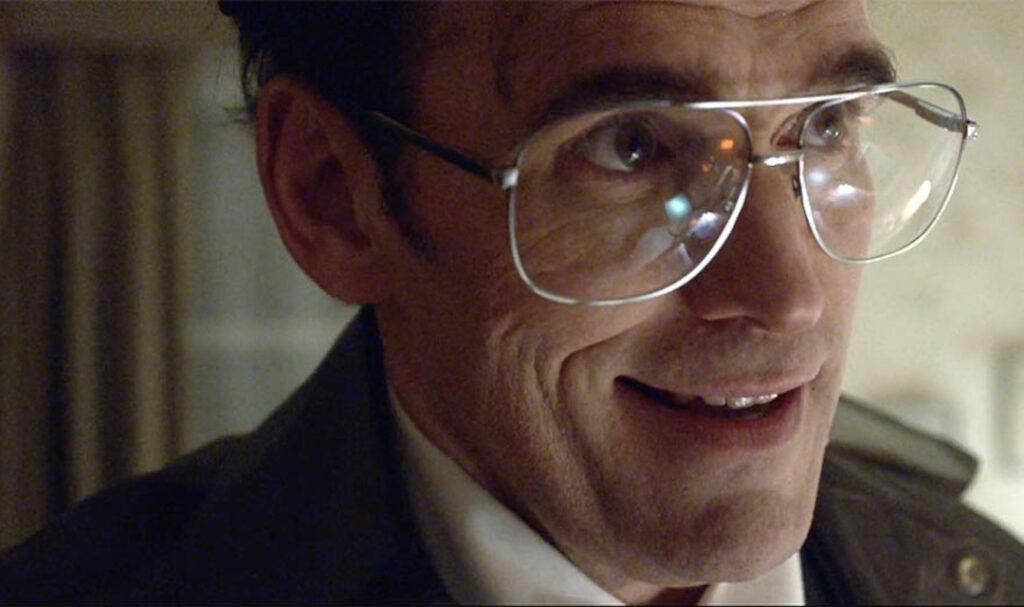
Immediately after Lars Von Trier’s Nymphomaniac was released, the director proclaimed that he was working on another project, The House That Jack Built, and that it would be about a serial killer with OCD who views his murders as art. During its production, rumors of 8-hour-long run-times kept surfacing, and the potential for a mini-series was thrown around. I hear this about every Von Trier film I fall in love with. In addition, this would be Von Trier’s triumphant return to Cannes after some rather controversial remarks landed him on their black list in 2011.
This was easily one of my most anticipated films of the year, and when I was finally able to watch it a few weeks ago, I watched it twice in a row. It’s Von Trier’s most self-deprecating and personal film, and it’s the work of an auteur that knows he can get away with murder – in both a literal and figurative sense. I see it as one giant metaphor for Von Trier’s relationship with his own art, and a representation of everything he as a director has been spiraling toward for his entire career. If Antichrist, Melancholia, and Nymphomaniac make up the “Depression Trilogy,” then The House That Jack Built is a wryly humorous acknowledgment that Von Trier’s depression was an integral part of what made those films as great as they were.
As a personal film that comes straight from the director’s heart, one does have to wonder: is Lars Von Trier a terrible human being? If you want to be reductive, you can view The House That Jack Built as one giant, lazy middle finger to the Cannes Film Festival and its snobbier attendees. The film itself is extraordinarily brutal, and focuses on graphic and disturbing violence often directed at women or children. The way this resolves itself is beautiful and brilliant, but for some people, this is going to be a really, really tough film to watch. However, since Jack is clearly meant to mirror Von Trier, perhaps we’re watching the work of a truly sick individual who just wants us to suffer through cleverly torturous ordeals meant to make us ill. It is precisely this quality that keeps me coming back to Von Trier’s work, and arguably, this may be his best work. At the least, it’s the most “Von Trier” thing on earth.